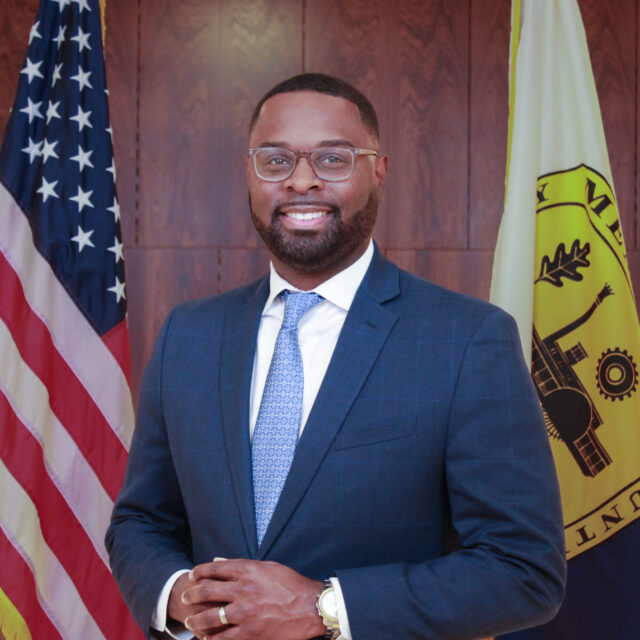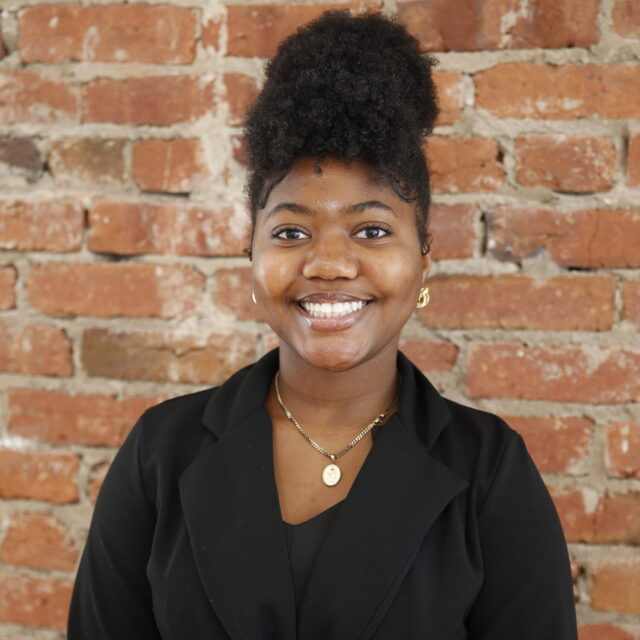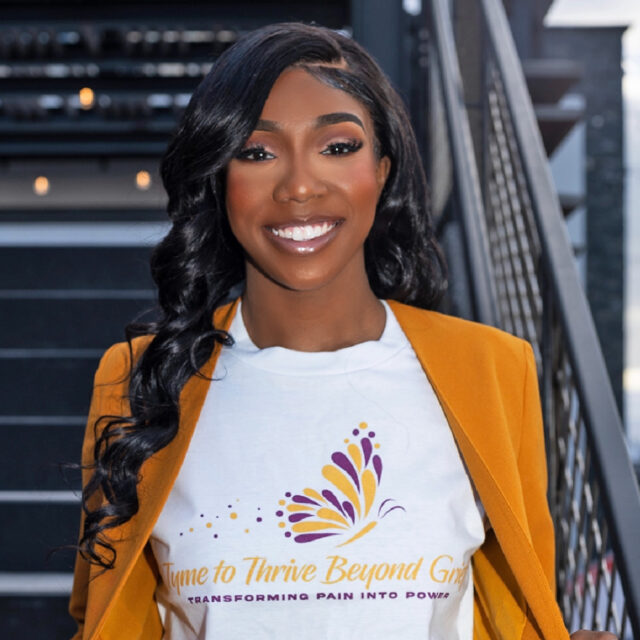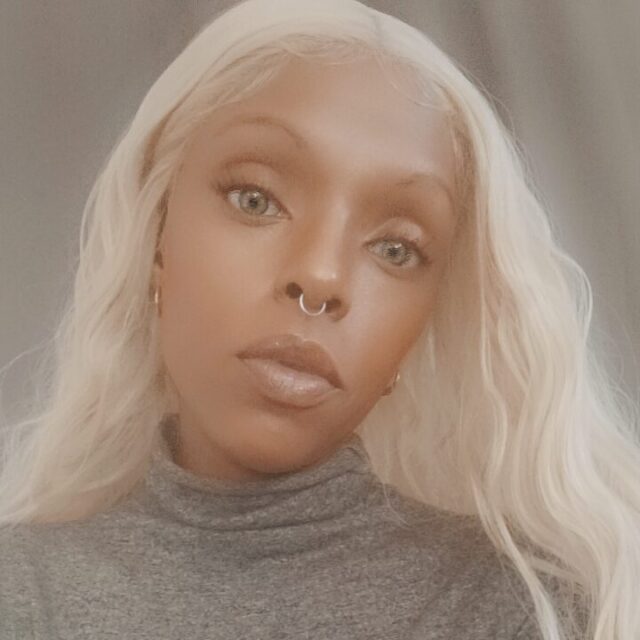FORCE Detroit: Our Work Is Saving Lives—and I Know That Because It Saved Mine
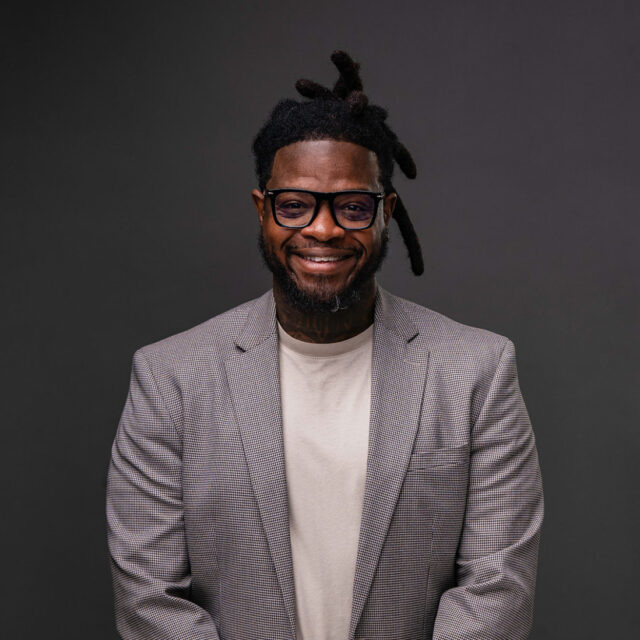
2.24.2025
I’ve always wanted to give back to my community and to protect it. Today, I am grateful to be doing that work as the executive director of Faithfully Organizing for Community Empowerment (FORCE) Detroit in Michigan.
FORCE Detroit is committed to serving individuals impacted by cycles of violence, as well as those living in close proximity to them. We work with existing community relationships and resources to intervene in life-threatening conflicts. We advocate for policies that will create sustainable funding for community violence intervention (CVI). Grassroots organizing is extremely important to me, and to other leaders at FORCE Detroit engaged in this work. We can’t accomplish or structure anything effectively without organizing it! And above all, we take a culturally relevant, trauma-informed approach to our organizing, advocacy, and CVI efforts. Our work is, quite literally, saving lives—and I know that from personal experience, because it saved mine.
Three weeks after I was released from prison, my brother invited me to meet his friend Alia Harvey-Quinn—the founder of FORCE Detroit. When we met, we talked about how CVI strategies and cognitive behavioral therapy (CBT) could be used to help prevent gun violence. During our conversation, I realized that Alia Harvey-Quinn, other leaders in the violence prevention space in Detroit, and I shared similar views. We all saw the importance of using CVI efforts to reduce violence.
Shortly after that initial meeting, I began volunteering with FORCE Detroit. I was open to coaching and mentoring from leadership within the organization. That investment from others prepared me for the responsibilities that come with my leadership now. Alia Harvey-Quinn was one of my key mentors: She believed in me, I believed in her, and now our community believes in us!
“Our work is, quite literally, saving lives—and I know that from personal experience, because it saved mine.”
—DuJuan “Zoe” Kennedy, FORCE Detroit
Now, I try to pass along to others the same mentorship that was shown to me. I recently had the pleasure of introducing a young man in our community to trailblazers in Detroit’s violence prevention work. That young man has since recruited his peers in his neighborhood, introducing them to violence intervention skills and techniques. The type of work that he and his peers are doing has helped to reshape social norms in their neighborhoods and communities. And this CVI work has directly contributed to historic decreases in violence in Detroit in recent years.
During and after the onset of the COVID-19 pandemic, gun violence reached a tragic high in cities across the nation, including Detroit. In response, the City of Detroit launched a “ShotStoppers” CVI initiative in July 2023. FORCE Detroit was selected as one of these groups and tasked with reducing homicides and shootings in a “CVI Zone.” We were “empowered to propose a specific approach” to accomplish this goal. At FORCE Detroit, we are led by trusted community stakeholders who live, work, and volunteer in the communities we serve. For example, I usually end my day by stopping by the local barbershop where I first started organizing to check in on my brothers. We have personal connections to and knowledge of the communities in our zone. And we feel confident we can rise to the occasion to reduce violence in our city.
With the other five selected organizations, we more than met the moment. According to a December 2024 city release, all six CVI organizations “achieved reductions in shootings and homicides in their zones that exceed[ed] the citywide average reduction” between August and October 2024. The citywide average drop in violent crime was 35 percent during that timeframe. The average drop in our FORCE Detroit CVI Zone was 52 percent.
That violent crime reduction wasn’t just a three-month effort. It came about through nearly a decade of FORCE Detroit investing in community members—those closest to the needs of their neighborhoods—to foster community change through relationships. These people truly understand both the root causes of violence and what is needed to address them. And they are dedicated to grassroots organizing, healing, and community-led solutions. These hardships that violence interrupters face are challenging, yes. But showing up consistently, even and especially in the difficult or “inconvenient” moments, is critical. We work hard to ensure that community members can see that our behavior, actions, and deeds align with the mission we put on paper. Both those who are served by and those who serve within FORCE Detroit are honorable, courageous, and integral members of their communities.
One vital part of our violence reduction work is our events and outreach coordinator. They engage people at risk of experiencing violence to pro-social, awareness-increasing, and joyful activities that promote community-building. We filled this coordinator role using the grant we received from the Everytown Community Safety Fund in 2024. The funds have gone toward hiring, training, and supporting the coordinator as they deliver CVI activities and services. They are also essential to FORCE Detroit’s efforts to achieve far-reaching support for CVI and expand its impact.
“My efforts in my community are a product of love and mentorship by people who cared enough to see me, not as a list of mistakes or as a statistic, but as a person worth investing in. Be careful what, or who, you throw away—you may find out that you’ve needed them the whole time.”
—DuJuan Kennedy, executive director of FORCE Detroit
I am blessed to be surrounded by survivors and trailblazers who are leading the fight against gun violence in our communities. During Black History Month and beyond, I strive to give leaders like Alia Harvey-Quinn and the many Black survivors, leaders, and members of the gun violence prevention movement the shine they deserve. Spotlighting their efforts helps keep the confidence and resilience intact of those of us who are committed to the betterment of our communities. Every day, we face challenges in this work:
- Times when no one checks in on us or when someone we serve becomes upset with us;
- Times when we are away from our families and missing time with them so we can try to keep someone else’s family intact;
- And times when the life of someone we love in community is taken by someone else we love in community.
Even when the work is emotional or heart-wrenching, what motivates me to continue is reflecting on the harm that participation in violence has caused, and personally experiencing the healing that intervention is having on my community. I could have died in prison. But my efforts in my community are a product of love and mentorship by people who cared enough to see me, not as a list of mistakes or as a statistic, but as a person worth investing in. Be careful what, or who, you throw away—you may find out that you’ve needed them the whole time.


